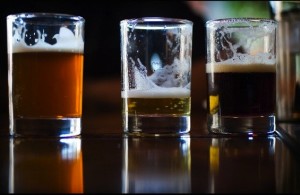I went to an evangelical Christian college that did not permit the consumption of alcohol. I grew up in a household and a conservative church culture--Midwest to boot--where drinking was out of the question and seen as bereft of goodness. I’m the child of an American evangelicalism that has had a decidedly contentious (to put it mildly) relationship with alcohol (see “Christians and Alcohol: A Timeline”).
Login to read more
Sign in or create a free account to access Subscriber-only content.
